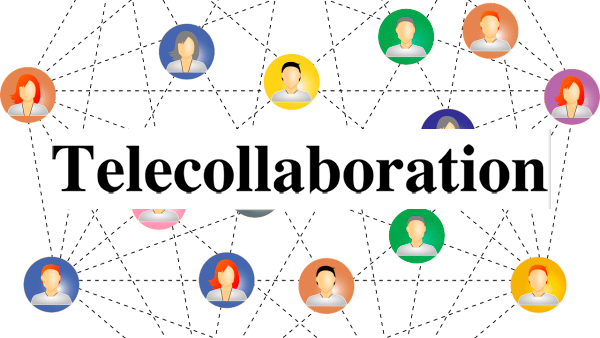2023 Demos & Discussion series:
Zoom: register to receive link
2:00 PM – 3:00 PM HST
Dec. 5 (Tues)
Cultivating Inclusivity in Language Teaching and CALL: A Deep Dive into Diversity, Equity, and Inclusion (DEI)

Assistant Professor of Second Language Acquisition and CALL, University of ArizonaIn the realm of language teaching, the intersection of Diversity, Equity, and Inclusion (DEI) assumes a pivotal role in shaping effective pedagogical approaches and cultivating an inclusive, equitable learning environment. This presentation aims to establish the profound relevance of DEI principles in the context of second language learning and teaching, highlighting the symbiotic relationship between cultural diversity, social class, varying experiences, and linguistic proficiency. Drawing on the principles of Culturally Sustainable Pedagogies, we will provide recommendations and practical tips for ensuring DEI support in your second language class. The latter part of the talk will specifically delve into DEI issues within Computer-Assisted Language Learning (CALL) and research. In conclusion, this presentation underscores the paramount significance of seamlessly integrating DEI principles into the framework of second language education.
In-Person: Moore Hall 257, UH Mānoa
Zoom: register to receive link
3:00 PM – 4:00 PM HST
Nov. 14 (Tues)
Python Series Special Topic: Multilingual Natural Language Processing with spaCy
Presenter: Dr. Richard Medina, Assistant Faculty Specialist in Human-Computer Interaction, UH Mānoa, Center for Language & Technology
Familiarity with writing Python scripts would be useful but not necessary to benefit from the workshop. This workshop demonstrates the use of the spaCy (https://spacy.io/), a multilingual Python library for carrying out common natural language processing tasks. The session consists of a walkthrough of using spaCy for two or three illustrative NLP use cases. The objective is to provide a basic introduction to the library and how it can be used for many different tasks. This session is a special topic in the Programming Essentials for Studies in Human Language & Technology series.
In-Person: Moore Hall 258, UH Mānoa
12:00 PM – 1:00 PM HST
Nov. 8 (Wed)
Assessing the effects of AI-assistance on L2 writing: A comparative study of ChatGPT use among multilingual Mandarin learners
Presenters: UH Mānoa, Center for Language & Technology
Mr. Alexander Tang, Graduate Assistant, Doctoral Student of Chinese Lang & Linguistics
Dr. Naiyi Xie Fincham, Assistant Faculty Specialist in Instructional Design
This study investigates the impact of Artificial Intelligence (AI), specifically ChatGPT, on Second Language (L2) writing in the context of Mandarin Chinese language learning. The aim of this study is twofold: Firstly, to discern the differential impacts of AI on L2 writing performance; and secondly, to understand student reliance on AI tools in the language learning process. A quasi-experimental design, employing both quantitative and qualitative methodologies, has been utilized. By probing the potential of AI in supporting L2 writing, we contribute to the understanding of how technology can be leveraged to improve the teaching and learning of less commonly taught languages.
In-Person: Moore Hall 257, UH Mānoa
Zoom: register to receive link
3:00 PM – 4:00 PM HST
Oct. 26 (Thurs)
Getting Started with Project-Based Language Learning
UH Mānoa, Center for Language & Technology
Project-Based Language Learning (PBLL) offers a framework for designing powerful, culturally contextualized experiences that create opportunities for learners to use their language to address real world needs that are personally meaningful to them. It engages learners in investigating, over an extended time, a complex real-world issue to benefit an authentic audience. This presentation will go through the basics of getting started with PBLL.
In-Person: Moore Hall 257, UH Mānoa
Zoom: register to receive link
3:00 PM – 4:00 PM HST
Oct. 19 (Thurs)
Tips and Tricks with LaTeX & Overleaf
Presenter: Dr. Richard Medina, Assistant Faculty Specialist in Human-Computer Interaction, UH Mānoa, Center for Language & Technology
LaTeX (pronounced “Lah-tech”) is a typesetting system that’s used to produce beautifully formatted documents. It is a file format that publishers, academic journals and conferences, grant funders, and academic settings sometimes request. Using LaTeX, authors write content in plain text documents (i.e., not Microsoft Word) but include special commands that are recognized by the typesetting system and used to generate the final formatted document. In other words, LaTeX takes care of the formatting and lets the writer focus on content. In this demonstration, Richard will provide a brief background on LaTeX and Overleaf (an application designed to make LaTeX authoring more intuitive) and model some common use cases. He will also share tips on document formatting (margins, line spacing, typesetting), document layouts, and citation and bibliographic commands that can be used with LaTeX.
In-Person: Moore Hall 155B, UH Mānoa
3:00 PM – 4:00 PM HST
Sept. 6 (Wed)
Sept. 14 (Thurs)
Sept. 20 (Wed)
Sept. 28 (Thurs)
Leveling up with AI: Open CLT Forums on AI Use Cases for Language Learning (4-session series)
Facilitators: UH Mānoa, Center for Language & Technology Faculty
Dr. Julio Rodriguez, Dr. Naiyi Xie Fincham, Dr. Rachel Mamiya Hernandez, Dr. Richard Medina
Come & talk story! The four sessions in this series are:
- 9/6 (Wed): ChatGPT for Generating Language Examples
- 9/14 (Thurs): The Power of the Prompt: ChatGPT Prompts & Language Learning
- 9/20 (Wed): Rethinking Assessments with Generative AI
- 9/28 (Thurs): AI Tools for Language Teaching
In this series of four sessions, CLT faculty invite participants to meet and discuss topics related to the use of AI technology (e.g., ChatGPT) for teaching languages. Each session is an open forum format where participants and CLT faculty can discuss different uses of AI for language learning. CLT faculty will be on hand at each session to introduce the session topic, followed by demonstrations, an open question and answer period, and opportunities to explore. This is a great chance to explore, brainstorm, and discuss different ways AI technologies can be applied to language teaching, learning and research.
In-Person: Moore Hall 258, UH Mānoa
Zoom
2:30 PM – 3:30 PM HST
Sept. 13 (Wed)
Building Intercultural Awareness with Scenario-based Training through the Culture App
Facilitators: UH Mānoa, Tech Center Faculty
In this session, Dr. Suzanne Freynik, Ms. Molly Godwin-Jones, and Dr. Richard Medina present The Culture App, an open educational resource designed to build intercultural awareness and help prepare learners for study abroad. This resource is based on scenarios which provide rich contexts and nuanced feedback about situations where miscommunications are likely to arise due to differences in cultural norms and expectations. Reflection and extension tasks serve as jumping off points for discussions.
The original modules were created by an inter-institutional, international and cross-language initiative. Currently, these are available in Arabic, Brazilian Portuguese, Chinese, Hindi, Indonesian, Russian, and Turkish, with more languages to come.
In-Person: Moore Hall 257, UH Mānoa
Zoom
June 21 (Wed),
2:00 PM – 3:00 PM HST
Results of the UH-UAL telecollaboration project: task types and student’s motivation
Presenter: Dr. Alberto Andujar
Lecturer, Department of English Studies, University of Almeria (Spain)
Visiting Colleague, UH Mānoa, Center for Language & Technology
Dr. Alberto Andujar led a Spanish-American telecollaboration project at the University of Hawai‘i at Mānoa from 2022-2023. The construct of engagement and motivation was explored in relation with task design in telecollaboration environments. This session will describe the main results and findings regarding the different task types used in the project, as well as students’ motivation towards three types of tasks: information exchange, comparing cultures and product creation.
In-Person: Moore Hall 257, UH Mānoa
Zoom
May 4 (Thurs),
1:30 PM – 2:30 PM HST
ChatGPT & Other AI Tools: Opportunities & Challenges
Presenters: UH Mānoa, Center for Language & Technology Faculty
Julio Rodriguez, Director
Naiyi Xie Fincham, Assistant Faculty Specialist in Instructional Design
Richard Medina, Assistant Faculty Specialist in Human-Computer Interaction
Recent exponential advancements in artificial intelligence (AI) have brought exciting new opportunities for innovation in world language education. Among the most notable of the AI-based tools is ChatGPT, developed by OpenAI, which has received considerable attention due to its ability to generate human-like text, engage users in interactive conversations, and automate time-consuming tasks, such as summarizing a text.
In this session we will demonstrate a few AI technologies and some of their key features. We will also provide opportunities for participants to try them and discuss their potential to support or enhance language teaching and learning.
Come join us in this highly interactive session and together let’s envision the (near) future of world language education in the era of AI.
In-Person: Moore Hall 257, UH Mānoa
Zoom
April 19 (Wed),
1:30 PM – 2:30 PM HST
Adventure Games for Language Learning: Deconstructing the Design Process
Presenters: Naiyi Xie Fincham, Assistant Faculty Specialist in Instructional Design, UH Mānoa, Center for Language & Technology
Koyuki Mitani & Alexander Tang, Graduate Assistants, UH Mānoa, Center for Language & Technology
This session presents the design processes, templates, and resources used to create two adventure games delivered in online/hybrid formats for Japanese and Chinese learners. The Japanese game introduces a well-known urban legend in Japan, Kuchisake Onna (Spit-mouthed Woman), and the Mandarin Chinese game adapts the classic Chinese folklore, Hua Pi (Painted Skin). Both games integrate authentic cultural historic values and practices, course materials, and unit-level learning objectives to engage students in contextualized language-focused quests. Participants will experience the games from the learner perspective (English version of the games will be available) in different delivery formats and explore ways of adapting the design in their own classrooms.
In-Person: Moore Hall 257, UH Mānoa
Zoom
March 7 (Tues),
2:00 PM – 3:00 PM HST
Laulima v.21 Upgrade: Explore new features and share teaching tips
Presenter: Dr. Naiyi Xie Fincham, Assistant Faculty Specialist in Instructional Design, UH Mānoa, Center for Language & Technology
This hands-on session showcases some of the new features and updates rolled out with the Laulima v.21 upgrade and shares tips for instruction and course design. Participants are invited to explore the new features together, discuss their experience with the new (and old) features, and engage collaboratively in addressing challenges they have encountered in using Laulima in their teaching.
NOTE: Participants are asked to bring their own device for this hands-on experience.
Zoom recording of presentation
Presentation Slides
Laulima v21 Upgrade Features: (Faculty Resource) (Student Resource)
All Sessions:
- In-Person: Moore Hall 153A, UH Mānoa
- Zoom
Level 2: Essentials for Reading, Writing, & Processing Data Files
Jan. 25 (Wed), 3:00 PM – 4:00 PM HST
Level 3: Working with Natural Language Toolkit (NLTK)
Feb. 8 (Wed), 3:00 PM – 4:00 PM HST
Level 4: Exploring More Python-based Tools for Studies in Human Language & Technology
Feb. 22 (Wed), 3:00 PM – 4:00 PM HST
Python Series (Levels 2, 3, 4) (3 sessions)
Presenter: Dr. Richard Medina, Assistant Faculty Specialist in Human-Computer Interaction, UH Mānoa, Center for Language & Technology
This series of three workshops introduces and demonstrates techniques for working with language data in Python. Topics include Python structures such as lists and loops, the Natural Language Toolkit (NLTK), and working with third party libraries and cloud based services such as the Google Cloud Natural Language API. The goal of this series is to provide participants an initial foundation into these topics for use in their own scholarly or academic work.
(Pre-requisite) Python Level 1: Fundamentals of Computer Programming for Language Data Processing
Python Level 2: Essentials for Reading, Writing, & Processing Data Files
Jan. 25, 2023 (Wed), 3:00 PM – 4:00 PM HST
Zoom recording of presentation
Presentation Slides (w/links to resources)
Python Level 3: Working with Natural Language Toolkit (NLTK)
Feb. 8, 2023 (Wed), 3:00 PM – 4:00 PM HST
Zoom recording of presentation
Presentation Slides (w/links to resources)
Python Level 4: Exploring More Python-based Tools for Studies in Human Language & Technology
Feb. 22, 2023 (Wed), 3:00 PM – 4:00 PM HST
Zoom recording of presentation
Presentation Slides (w/links to resources)
All Sessions: Moore Hall 257, UH Mānoa
Session 1: Tools and design principles
Jan. 19 (Thurs), 2:00pm – 3:00pm HST
Session 2: Media production
Jan. 26 (Thurs), 2:00pm – 3:00pm HST
Session 3: Layout and media integration
Feb. 2 (Thurs), 2:00pm – 3:00pm HST
Google Sites – Building a Professional Website Series (3-sessions)
Presenter: Dr. Julio Rodriguez, Director, UH Mānoa, Center for Language & Technology
This 3-session hands-on workshop will help participants design and build a basic professional website. Participants will become familiar with the basic features of Google Sites, including layout and media integration tools. The second session will focus on producing and optimizing digital resources (pictures, video, etc.) to integrate into the website. The last session will focus on improving layout and integrating media.
Sessions will NOT be recorded as these are hands-on workshops. Participants should bring their own laptop to follow along.














